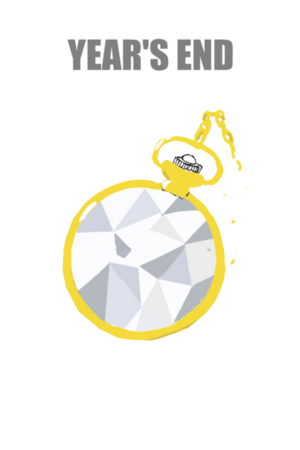Chapter 5:
The Unparalleled Scientific Mastermind
Maris’s Fall, Erath’s Collapse
The conference did not include Martin Wilkerson. He was afraid to leave the protection of his shield. Rather, he watched from a distance, contributing his own thoughts to the scientists' conversations. He could have become the new leader if he had been there.
Nothing new emerged during the first week of the conference. It appeared as though the scientists were waiting for someone to take charge of the project. Hubert Montgomery was looked to by many, who expected him to speak or take command. He didn't. Instead, he looked on with a chuckle, finding a sinister irony in people's propensity for self-destruction. Why ought he to assist them? In any case, he would probably be dead before the repercussions were significant.
Why the conference stalled was beyond Martin Wilkerson's comprehension. He understood science as easily as breathing, but political scheming was a foreign language to him. But now, his life depended on science. To save himself, he had to come up with a scientific solution.
Jonathan Aston was equally determined. He sat at the Scientific Convention, intently watching the political chess game in his mind. Although he was aware of the dynamics at work, he wasn't sure if he could change them. He debated the matter in vain for eight days before deciding to confront Hubert in private.
"Are you aware of the practical methods for creating a radiation shield?" Aston's first query was met with disapproval.
Indeed. Aston dislikes sarcasm, but Hubert didn't let it bother him. "I've been sitting through this conference for eight days, knowing exactly how to fix things, and I haven't said a word," he said.
"I intended—"
"I understand your meaning. You wish to appropriate my concepts and give yourself credit for them. I am aware of how scientists operate. I am among them.
That's not what I meant to say. I'm looking for an escape route. In order to find a place free from human corruption, I wish to leave Erath.
"I was an idealist once, too. It is ineffective. Take a look at where we ended up after trying it with Maris. I nearly wish I had never thought of the shield.
"However, it saved lives."
Yes, and billions of people were killed as well. Was it truly worthwhile?
"I would like to say that it was."
"I do, too." The old scientist turned and left.
"Hold on. I asked you about the radiation shield, but you never responded.
"I understand." The great inventor dismissed the young upstart and left. He didn't care; he was too preoccupied with his own thoughts. He would never be seen alive again.
The sound of a gunshot reverberated throughout the scientists' dormitory. The hallways were immediately overrun with guards, who hurried to identify the source. Hoping for the best but fearing the worst, Jonathan hurried to Hubert Montgomery's room.
Outside the door, guards were already beating on it. They broke it down when they didn't hear back. The great scientist's body was there, crumpled on the floor in the middle of the room. A pistol, still warm from its last use, lay in his hand, and fresh blood still trickled from a wound on his head. The expected leader had passed away. Overwhelmed, Jonathan Aston turned away. The idea that his conversation might have pushed the man over the edge was too much for him to handle. Even though he knew deep down that Hubert was already suffering, what if he was to blame? Without the man who had made the previous conference a success, how could this one go forward?
Jonathan walked cautiously around the bloody puddle as he entered the room, steeling himself. He found what he had asked about that night at the desk. It turned out that the sly old fox had figured out most of the radiation shield's construction. Jonathan collected the documents, which would come in very handy later.
The convention activities for the following day were canceled. Throughout the day, Jonathan studied the plans that the late genius had created. With these thoughts running through his head the whole time, Hubert had known exactly what he was doing. What had been lost last night was brilliance. These, at least, could be saved. Jonathan carefully examined the calculations and drawings, looking for errors, but he only discovered that the plans were still lacking. The old man's inventiveness astounded him.
Sequestered in the mental institution, Martin Wilkerson was disturbed by what had happened the night before. Why did this man do this? The Hubert Montgomery of the past would not have done this. Why do people commit such stupid errors? The only thing Martin Wilkerson could hope for was that some of the scientist's work had survived. He eagerly awaited the events of the following day.
At first, it appeared as though the conference would continue in the same unproductive direction as the previous week. The obvious grief on many faces was the only difference. Jonathan Aston did not present the great scientist's findings until that afternoon.
Jonathan declared, "After Hubert Montgomery passed away, I discovered these plans in his room." Despite their incompleteness, they are flawless. It is up to you, the Second Scientific Convention members, to continue the work of this man who is no longer with us. In his absence, we must continue the tradition of excellence. I'm hoping they won't be upset with me for finding his work and holding off on sharing it right away.
Copies of the ideas and notes were passed around the tables one by one so that everyone could look over and consider them. Finally, they had a purpose, a leader, and an idea. Now, they could carry on the work in honor of the unrivaled scientific genius, Hubert Montgomery.
As the events developed, Martin Wilkerson watched with increasing interest. His own concepts seemed trivial in comparison to this deceased genius's creations. He started researching the topic on his own and came up with a number of theoretical answers, but none of them were readily testable, so he put them aside to watch the scientific community at work.
Throughout the entire conference, Jonathan Aston remained in charge. Although he lamented the passing of the great Montgomery, he acknowledged that the conference might never have accomplished anything if he had not passed away. The elderly man had turned into a crutch because his own philosophical problems had paralyzed him: If more could have been saved, was it right to save so many? Does science produce more harm than good? Had billions died because of his work? Although his bewilderment and rage were understandable, Jonathan knew the answer because he might soon have to deal with the same dilemma. In any case, humanity would have wiped itself out. It was simply the conduit fate had selected at that time, not his fault that his creations enabled that destruction.




Please sign in to leave a comment.